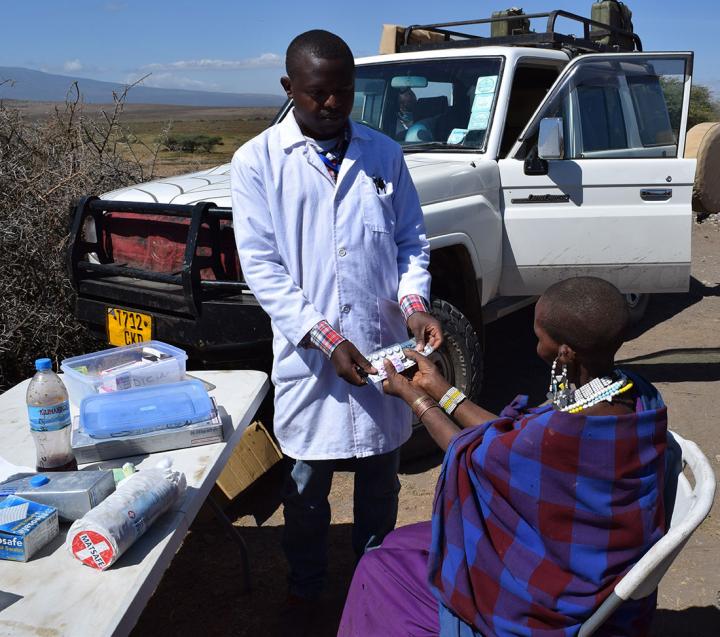Health care access could curb drug resistance in Africa
A one-health review in East African countries shows that improved access to quality drugs and healthcare is a major route for reducing antimicrobial resistance.

Improving access to drugs and quality of healthcare provision could help to address the risk of antimicrobial resistance in low- and middle-income countries, a review study has found.
A range of measures could help to balance the need for universal access to treatments with appropriate use of drugs, in countries where limited access and uneven quality of care lead to misuse and over-prescription of antimicrobial drugs, a study of research in East African countries has found.
Their study of human and animal healthcare in Tanzania, Kenya and Uganda considered previous research on the provision of widely used antimicrobial drugs, such as antibiotics and antimalarials.
Preventative measures
The team, involving Roslin scientists, found infrastructural, economic, organisational and social barriers to human and animal healthcare at all levels of society.
Retail providers are the most commonly used providers of drugs, which can lead to treatment decisions based on brand, cost or other factors, rather than appropriateness.
Drug choice is often poorly informed, driven by patient preference or diagnostic uncertainty, leading to overuse and over-prescription of antimicrobials. In addition, people perceive drugs to be the most important component of healthcare, and may consider other treatment approaches less important.
Underfunding and understaffing are widespread in public vet services, and supply issues lead to shortages of treatments, the review found.
Paths to progress
To address the problem of antimicrobial resistance, the researchers suggest improvements to ensure that medicines are good quality, affordable, available and provided appropriately.
They also recommend efforts to educate and inform patients on appropriate medical interventions, and to include community healthcare providers and retailers into health planning.
Future research should aim to better understand the link between human and veterinary use of antimicrobials to inform best practice for prescription, dispensing and use, and to examine antibiotic access for animal health.
In addition, preventative infrastructure on farms, to enable good hygiene, together with mass vaccination and biosecurity, would reduce the need for antimicrobials in livestock, the team found.
The study, published in PLOS Neglected Tropical Diseases, was carried out by researchers at the University of Glasgow and the Roslin Institute. It was carried out under joint one heath postgraduate studentships funded by the Universities of Edinburgh and Glasgow.
Antimicrobials are critical for health care delivery and have transformed how we produce proteins of animal origin globally. Therefore, we should do everything it takes to preserve their utility. We must invest in the infrastructure that delivers, preserves and protects the quality and accessibility of medicines, and promote appropriate dispensing, which is informed by diagnostics, as the foundation for good antimicrobial stewardship on the African continent.
** The Roslin Institute receives strategic investment funding from the Biotechnology and Biological Sciences Research Council and it is part of the University of Edinburgh’s Royal (Dick) School of Veterinary Studies. **
Picture credit: Tiziana Lembo
Associated picture credit: Bill Wegener via Unsplash
Related links
TB insights may help breed healthier African cattle


